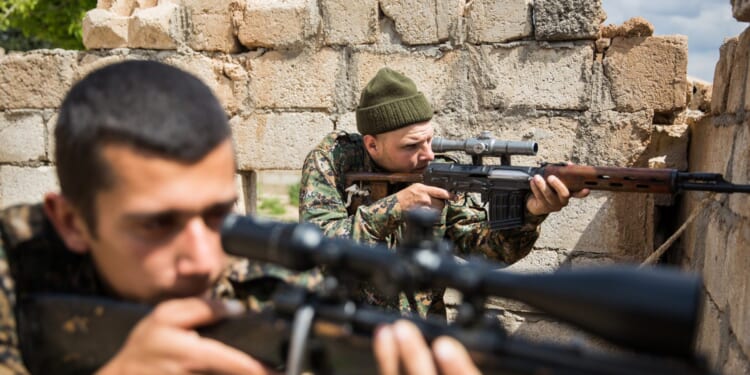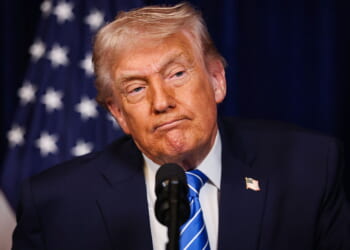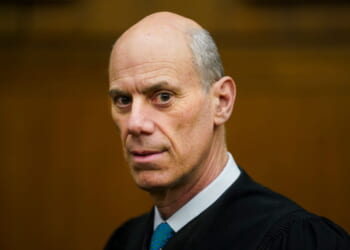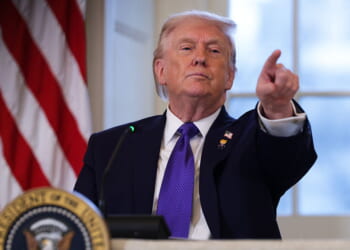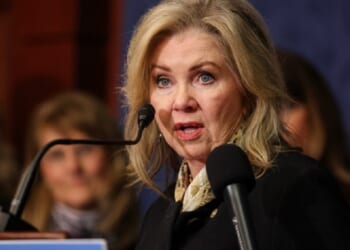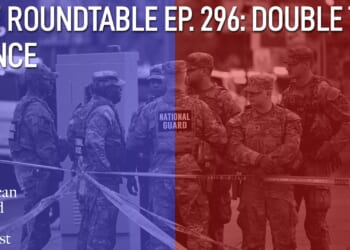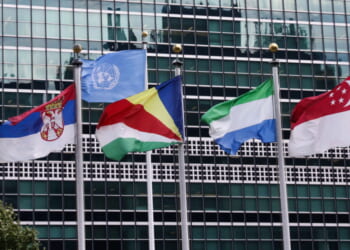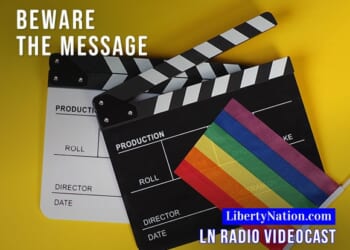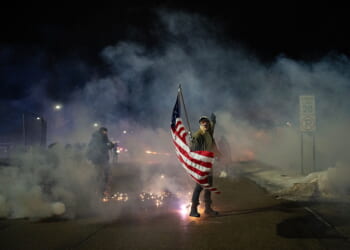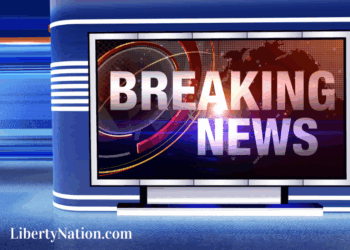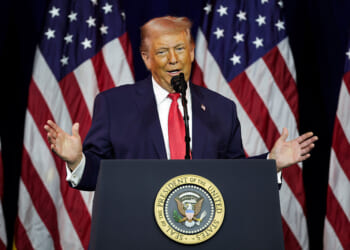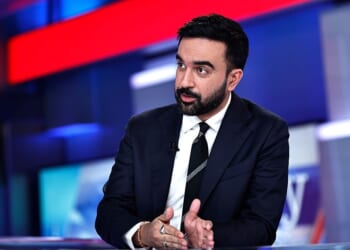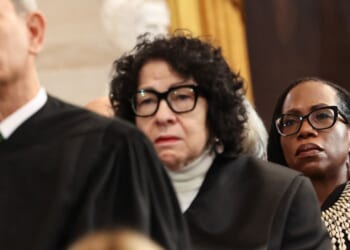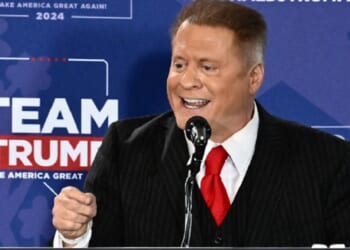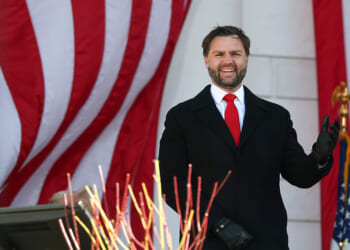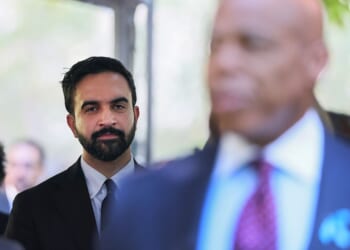Not so long ago, US presidents ordered the killing of jihadists from the White House. These days, they’re invited to Washington for a chat. Ahmed al-Sharaa’s meeting yesterday with Donald Trump represented the climax of a remarkable year for the former al-Qaeda leader: his transformation from terrorist to statesman is, it now seems, complete. And we must hope that it is a sincere metamorphosis. For after the chaos of Syria’s civil war, the Americans — and the world — need to know that Sharaa can hold his fragile country together.
So far, he has said the right things, apparently trying to govern with pragmatism. But the reality is that the future of Syria does not lie with him — and his fellow Sunnis — alone. Syria’s minorities will help decide the nation’s fate as well, and none is as large or powerful as its Kurds. They, after all, are the only real force in the country outside Damascus that can put a disciplined army in the field: the Syrian Democratic Forces (SDF), which was built in alliance with the United States to destroy ISIS. No less important, they control about 70% of Syria’s oil and gas reserves.
That blend of military and economic neatly explains why, if Syria is to survive as a viable state, Sharaa must find a way to accommodate its Kurdish minority, which even amid the upheavals of war and displacement represent roughly a tenth of the country’s total population. Combined with a gaggle of other minorities — Christians, Alawites, Druze — Syria simply cannot be the Sunni Caliphate that Sharaa once sought.
Still, many Kurds remain wary. In the cafés of Qamishli, the main city of the Syrian Kurdish region popularly known as Rojava, people joke that Sharaa’s beard may be shorter — but his prayers are the same. They want Syria to work. They need it to. But behind the dark humour lies genuine fear: that a man defined by jihad can never build the pluralist state necessary to keep Syria together.
No one understands these tensions better than Aldar Khalil. Officially, he is a senior member of the Executive Committee of the Democratic Society Movement in Rojava — the Kurdish-run autonomous region in Syria’s northeast — and its most powerful figure. In reality, he is its de facto leader. Whether or not the Syrian state can hold together will come down, in large part, to the decisions he and a few others around him take.
To meet Khalil, I leave Qamishli and travel through pale emptiness to the town of Hasakah. At checkpoints, Kurdish fighters in faded fatigues wave me through. We enter the city and eat. Night falls and we wait for news. It’s time: follow the black car, we are told. We end up in a municipal building of some kind. Prominently displayed on a wall is a photo of Abdullah Öcalan, founder of the Kurdistan Workers’ Party (PKK) who’s been in a Turkish prison since 1999, and whose picture you see everywhere in Rojava. We sit in a large room with Kurdish carpets on the wall. Coffee and bottles of water are laid out for us.
Khalil enters with his security detail. He wears beige trousers and a checked shirt. I notice that his left hand is missing. Later I ask why, but nobody really knows. One of my guides ventures that it might have something to do with a grenade, but that’s just speculation.
Khalil’s manner is polite, controlled, his voice almost soft. “People in Syria began the revolution hoping for a democratic system,” he says. “But after the regime collapsed, what came was in total opposition to that: a government that wants to take us back 1,400 years.” He means Sharaa. “This is someone with a very restrictive mind,” Khalil continues flatly. “You cannot expect someone like that to change. Maybe he changes his name or city, maybe he speaks differently for the media — but his beliefs stay the same.”
So can the Kurds deal with such a man? “We are Syrians,” Khalil replies. “Either we cede from Syria — and we have no plans for that — or we need to work with whoever is in Damascus, we have to deal with him. We are forced to negotiate.” What about clashes with Alawites on the coast, and with the Druze in Suweyda earlier this year, which both led to brief revivals of Syria’s sectarian slaughter? Does Khalil blame the government for those? “Of course we blame the government.”
Khalil’s own vision is simple: a decentralised Syria, each community managing itself, united by loose federal ties. Fail, he warns, and the country will slide back into civil war, not just in Rojava but “everywhere in Syria”. Not that Damascus is the only threat to Rojava’s future. It was Turkey, after all, that armed and bankrolled Sharaa’s overthrow of Assad at the end of last year, and which has considerable sway with Damascus now. This also poses a considerable problem for Rojava, whose Kurdish forces President Erdogan sees simply as the Syrian version of the PKK — which it considers to be a terror group responsible for tens of thousands of deaths in its mountainous southeast.
“Recently we have had several meetings in Damascus with the Syrian government,” Khalil tells me. “But unfortunately, after every meeting, Damascus promises to form committees to work on integration and then, immediately afterwards, Turkey steps in to impede the process. At the moment, we have two delegations waiting to see what will happen next, because Turkey keeps undermining the negotiations.”
I leave Khalil and step into the night. The traffic is heavy. Concrete minarets stand tall in the gloom. The next morning I’m back on the road again. The sun is climbing high, flattening everything into gold and white. I drive near Qamishli airport, and, to my right, the Turkish border scars the horizon. Every few kilometres, a watchtower stands looking across. To my left, a Russian flag flaps limply over an armoured compound.
It’s a physical reminder of the perennial role of outsiders here. Before I arrived, a regional expert explained the situation to me by way of analogy. “Think of Syria as a condominium,” he said. “Russia owns the walls, America the roof, and Turkey has the keys. Everyone else rents the space inside.”
“Think of Syria as a condominium. Russia owns the walls, America the roof, and Turkey has the keys. Everyone else rents the space inside.”
He was exaggerating for effect, but I now see what he means. Everywhere I look in Rojava, there are signs of this uneasy balance: Russian soldiers buy bread from Kurdish stalls; American engineers fix irrigation pumps; Turkish drones strike sporadically. It’s a useful reminder of how crucial this region remains: Moscow still needs Damascus to keep its port on the Mediterranean, while Iran wants a corridor to the sea once more and the United States, half-hearted and weary, stays only to contain the remnants of ISIS.
To understand what this might mean for the Kurds, I meet Fawza Yusuf, co-chair of the Autonomous Administration’s Executive Council. Composed and cheerful, she heads the delegation that meets with Damascus, which is to say she’s the woman now negotiating the fate of Syria for the Kurds. Like Khalil, meanwhile, she stresses the importance of negotiating with the new regime in Damascus. “From the start we believed the only way is peace, dialogue, and negotiation,” she explains. “We must talk to Damascus directly — there is no other path.”
It is the language of a negotiator who understands both the limits and the possibilities of her position. “We have fought enough wars,” Yusuf continues, sipping black tea. “Now we need a country where our children can live.” Yet — and again like Khalil — she’s sceptical of Sharaa’s intentions. “Their policy is anti-democratic,” she says. “They still don’t recognise others. But we continue working.”
What she means by “working” is critical, both to the Kurds and Damascus, and it includes the slow-motion integration of the SDF into the national army. You cannot run an effective state unless you have a monopoly on the use of force, which comes through having sole control of its only army. The Kurds, for their part, accept this, albeit on their own terms. “We agreed with Damascus that we will join the Syrian army — but not as individuals,” she says. “We will join as brigades: the SDF will become three brigades in the national army and remain stationed here.”
The SDF gives Rojava leverage — up to a point. The force numbers roughly perhaps 70,000 fighters, most of them veterans hardened by years of war with ISIS. They’re battle-tested, and disciplined in light-infantry and counterinsurgency tactics, but lack heavy armour, air defence, and artillery. In open battle, then, they’d be little match for Damascus’s army or Russian airpower. Yet in their own territory – the plains and towns of the northeast – they could bleed any invading force through guerrilla warfare and local support.
It is a clever sort of compromise: ostensible unity, but without surrender, even as Yusuf herself evokes a “decentralised” Syria going forward. Yet with many in Damascus seeing federalism as the short end of a secessionist wedge, optimism is perhaps harder in practice. Rhetorically, certainly, Sharaa is unequivocal about the need for a united Syria. “We must preserve national unity and civil peace as much as possible,” he said on 25 February, during the opening speech of the Syrian National Dialogue Conference in Damascus.
And if a Turkish-backed Sharaa is one worry for Yusuf, another foreign power looms large over Syria too. Israeli aircraft have long been a presence in the night skies, striking weapons depots from Damascus to Deir ez-Zor, sometimes near the oil fields the Kurds control. A weak, divided Syria suits Israel’s security. While Iran’s land bridge to Hezbollah fell with Assad, the Israelis want to ensure that Iranian militias cannot burrow their way into the nascent post-Assad state.
But Israel and the Kurds have much in common. Both perennial outsiders in a largely Sunni Arab Middle East, they have survived by living on the edge, sustained by vigilance. They have collaborated in the past, and, for many of the Kurds here, Israel is a model of the type of muscular independence they seek.
Yet the Israeli model the Kurds quietly admire – a small, embattled state that survived by building institutions, intelligence networks and deterrent power – offers both inspiration and illusion. Israel’s strength came from coherent leadership, outside backing, and a shared national narrative. The Kurds, by contrast, remain divided between rival parties and foreign patrons. Emulating Israel’s vigilance is one thing; reproducing its fortress statehood in the middle of Arab Syria is quite another.
There are other dangers in being seen as Israel’s proxy. The Druze of southern Syria learned that lesson when their perceived ties to Tel Aviv turned them into targets for both foreign jihadists and the Damascus regime. For the Kurds, then, any open alignment with Israel risks uniting Ankara, Tehran, and Damascus against them: a trinity of enemies they can hardly afford. Their survival, as ever, depends on balancing between powers without becoming the pawn of any.
And if Syria’s future depends on Rojava — secession would certainly wreck the country’s economy, and perhaps even rekindle the civil war’s ethnic butchery — the whole region hinges on it too. If Rojava unravels, after all, Lebanon’s sectarian truce could collapse; Iraq’s Kurdish-Arab balance might crack; Turkey would face renewed insurgency; Iran would push its militias deeper west. If Syria’s fate still depends on foreign powers, then, those same foreign powers are bound to Syria too — whether at the White House or closer to home.

